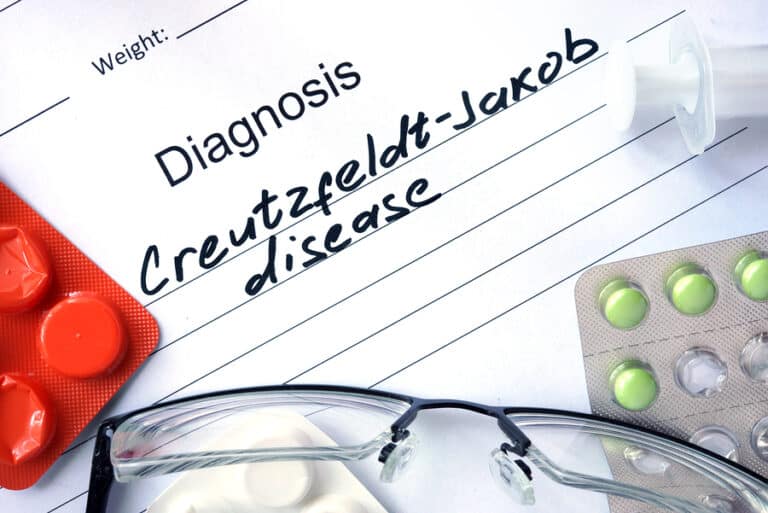Dementia has many causes. Alzheimer’s disease is the cause most people are familiar with. A lesser known cause of dementia is Creutzfeldt-Jakob disease (CJD). It’s not a common disease, affecting only around 350 people in the United States per year. Because the disease isn’t common, most people aren’t aware of what to look for in their aging relatives.

CJD Basics.
CJD is a disease that affects the brain, causing dementia and leading to death. Most people with CJD live for only about a year after being diagnosed. In many ways, the disease resembles other kinds of dementia, but it worsens much more quickly.
You may have heard of CJD in connection with “mad cow disease” in the United Kingdom. Back in the 1990s, some people got a type of the disease after eating infected beef. However, the classic form is not associated with diseased cattle.
Scientists believe that CJD is caused by prions that are not normal. Prions usually don’t cause any damage, but when they aren’t shaped correctly, they can be infectious. People typically develop the disease in one of three ways:
- Sporadically: Most cases of CJD are sporadic, meaning there is no apparent cause for them.
- Inherited: Less than 15 percent of CJD cases occur in people who have a genetic mutation linked to CJD or who have a family history of the disease.
- Contamination: Rare cases of the disease are caused by having a medical procedure where the patient is exposed to infected tissue, such as through the use of a contaminated medical instrument. Hospitals in the United States take specific steps to prevent contamination, so the chances of developing the disease in this manner are very low.
Symptoms of CJD.
When a person has CJD, their mental abilities deteriorate quickly, often within just a few months. The initial symptoms of CJD include:
- Changes in personality.
- Memory problems.
- Anxiety.
- Depression.
- Thinking problems.
- Trouble speaking.
- Blurry vision or vision loss.
- Movements that are sudden and jerky.
- Problems with swallowing.
- Insomnia.
As the disease progresses, the symptoms get worse. People with CJD usually die from heart or respiratory failure, infection, or pneumonia. Before dying, most people with CJD fall into a coma.
Elder care can help families to care for a senior with CJD. Elder care providers can ensure the older adult is safe at home when family caregivers cannot be there. They can monitor the person’s behavior and prevent them from doing anything unsafe. Elder care providers can also assist with personal care, such as helping the senior to use the bathroom, bathe, and dress.
If you or an aging loved one are considering hiring elder care in Simpsonville, SC, contact Heart of the Carolinas Home Care at 864-991-3116. Providing Home Care Services in Greenville, Simpsonville, Greer, Anderson, Spartanburg, Mauldin, Seneca, Laurens, Charleston, Columbia and the surrounding areas.
Sources
https://www.ninds.nih.gov/Disorders/Patient-Caregiver-Education/Fact-Sheets/Creutzfeldt-Jakob-Disease-Fact-Sheet
https://www.cdc.gov/prions/cjd/about.html
- Is it Possible to Prevent Family Caregiver Burnout? - April 25, 2025
- Home Care Assistance Helps Seniors After A Fall - April 9, 2025
- How Home Care Supports Seniors Who Are Hard of Hearing - March 28, 2025

